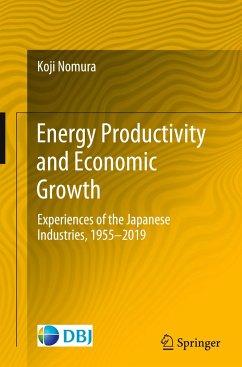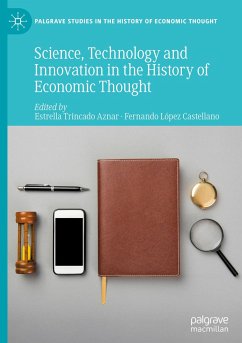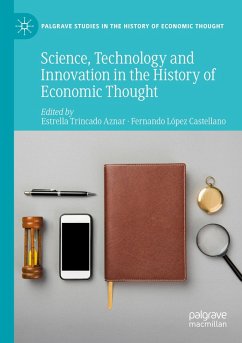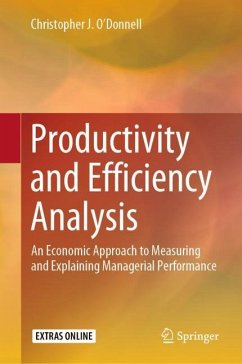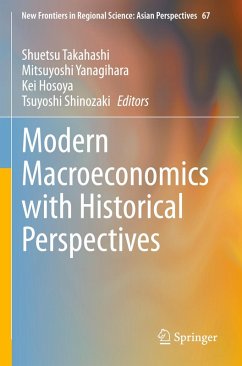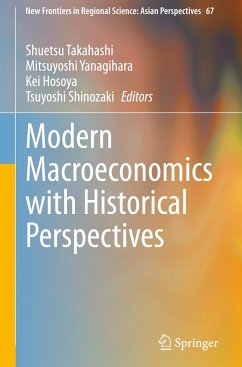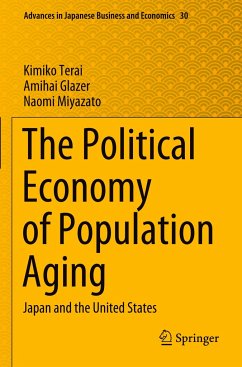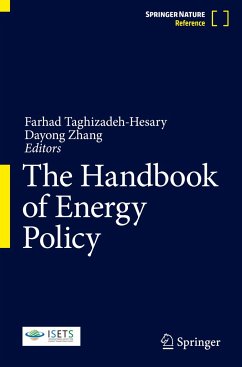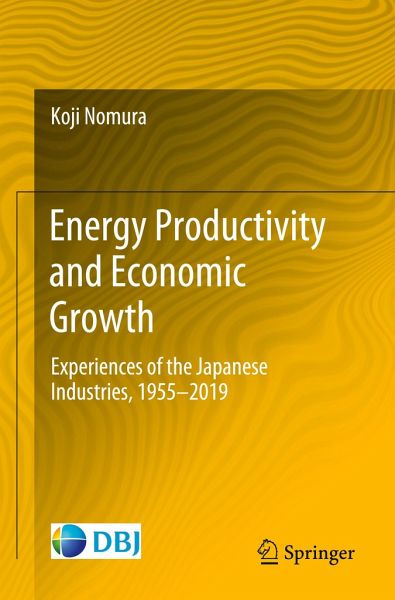
Energy Productivity and Economic Growth
Experiences of the Japanese Industries, 1955-2019
Versandkostenfrei!
Versandfertig in 6-10 Tagen
98,99 €
inkl. MwSt.
Weitere Ausgaben:

PAYBACK Punkte
49 °P sammeln!
Energy costs in the economy amount to only a few percent of gross domestic product, but their importance to economic growth is much greater than their apparent number. Energy is used in almost all production and consumption activities, and energy price changes induce significant spillover effects throughout the economic system. More importantly, stable and affordable access to energy is a critical factor in determining the rate of capital accumulation in a domestic economy and, hence, labor productivity growth. The expansion of production per hour worked is achieved by using more and higher qu...
Energy costs in the economy amount to only a few percent of gross domestic product, but their importance to economic growth is much greater than their apparent number. Energy is used in almost all production and consumption activities, and energy price changes induce significant spillover effects throughout the economic system. More importantly, stable and affordable access to energy is a critical factor in determining the rate of capital accumulation in a domestic economy and, hence, labor productivity growth. The expansion of production per hour worked is achieved by using more and higher quality capital, which requires more energy to operate. This book aims to provide robust observational facts on energy productivity improvement (EPI) and to analyze the mechanisms of EPI achieved in Japan's economic growth from 1955 to 2019. Linking the productivity account with energy statistics enables us to attempt not only to develop a better indicator of energy productivity but also toevaluate the EPI with other significant changes in the production process, such as capital productivity, labor productivity, and even the overall efficiency measured in terms of total factor productivity. This book is a valuable resource for researchers and policymakers seeking to understand the role of energy throughout the economy and for economic planners seeking to ensure the efficient use of energy now and into the future.





